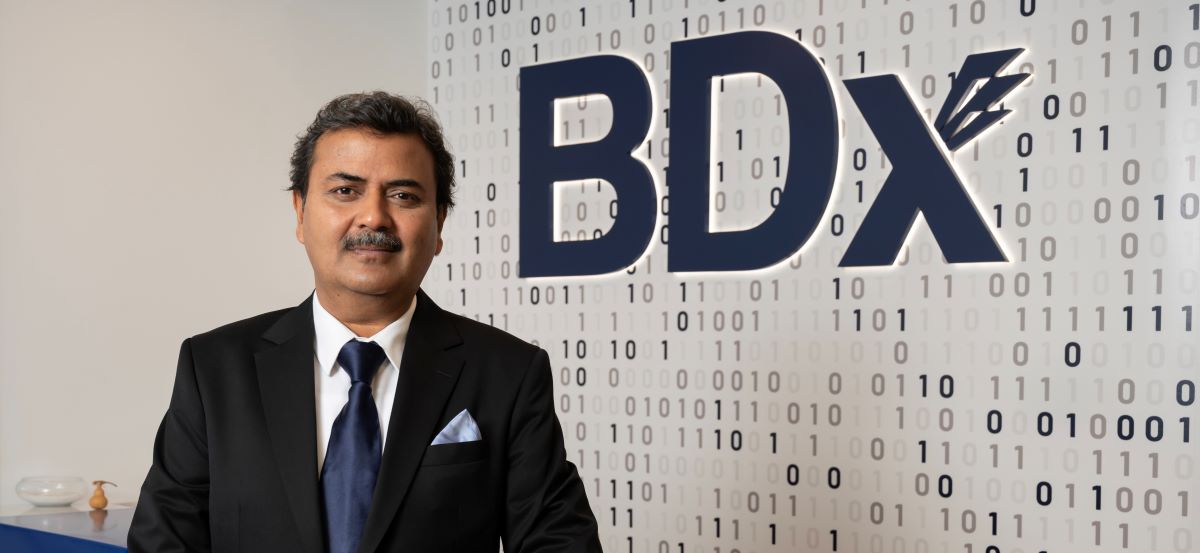BDx is not only about to aggressively expand its footprint across Asia Pacific and the Middle East, it is also dipping its feet deep into quantum computing believing it is the next frontier. w.media chats with CEO Mayank Srivastava in an exclusive email interview.
BDx Data Centers, whose core market is Indonesia, has firm plans soon to expand into Japan, South Korea, Australia, Thailand, Saudi Arabia (KSA), and Qatar, with the goal of reaching 1GW deployment across Asia Pacific and Middle East markets, says Mayank Srivastava, chief executive officer of the company in a recent interview with w.media. “Our mandate covers the region from the Middle East to Japan, with new Southeast Asian markets to be announced soon,” he adds.
However, one hot destination that BDx will avoid for the time being is Johor. The BDx chief explains, “While Johor is an emerging hub, our strategy is to build deep in-country expertise in diverse markets. Each market hits a limit in terms of the resources required to develop a data center. The Johor market is already at that limit.”
Indonesia will remain the central focus for them with over 60 per cent of its data centers sited in the country. Explaining the appeal of Indonesia, Mayank said: “It’s one of our most exciting markets. Its large, young, and highly digital population creates immense demand for data services. The government’s proactive stance, with initiatives like “Making Indonesia 4.0” and its sovereign nation initiative, make it a prime market for investment. Furthermore, Indonesia has a power surplus, which reduces the risk of energy shortages for data center development. While every market has complexities, such as navigating regulations and geography, the opportunities in Indonesia are unparalleled.”
The company has so far deployed significant funding in Indonesia, in the range of US$ 300 million, marking one of the largest foreign investments in the country’s digital infrastructure. Its expansion in Indonesia is backed by the company’s shareholder, I Squared Capital, and is part of a strategic joint venture, BDx Indonesia, with Indosat Ooredoo Hutchison and Lintasarta.
BDx’s flagship CGK4 AI Campus’ first phase is already operational. The 500MW campus is Indonesia’s first AI data center park powered by renewable energy, primarily stable, hydroelectric power. Its customers comprise mainly global hyperscalers, enterprises, government agencies, and startups.
Mayank is justifiably proud of the fact that the facility was completed in 73 days, a record in Indonesia. “This achievement showcased our ability to deliver high-density, AI-ready infrastructure with unprecedented speed, he says, adding: “This would also be the first instance of NVIDIA H100s being deployed in Indonesia, marking the start of the AI revolution in the country.”
The company’s goal is to achieve NVIDIA certification across its entire portfolio to democratize AI at scale. Beyond its primary AI campuses in Indonesia, the firm’s facilities in Taiwan and Hong Kong are also designed for AI workloads.
BDx’s infrastructure in Indonesia combines large-scale core data centers for AI training with over 50 edge sites for low-latency AI inference, covering 98 per cent of the country’s population. Its AI campuses in Indonesia integrate dual phase direct-to-chip liquid cooling at scale and flexible design which allow them to scale up the rack densities for future iterations of the NVIDIA GPUs, supporting to date up to 1MW density racks.
Apart from hydropower, the company also leverages locally sourced green energy like solar and wind wherever possible while exploring Ammonia, Biomethane, Hydrogen and onsite energy generation capabilities.
Quantum is next
BDx has the distinction of deploying Southeast Asia’s first commercial hybrid quantum computer at its SIN1 facility in Singapore following the signing of a Memorandum of Understanding with Anyon Technologies, a Singapore-based quantum computing company, in July. This initiative provides a platform for government agencies, enterprises, and startups to experiment with and advance quantum-enhanced AI applications.
Mayank explains that the biggest difference between AI and quantum computing is the type of problem each is best suited to solve. “Today’s AI runs on classical computers (using CPUs and GPUs), which are excellent for a vast range of tasks. A quantum computer, however, is designed to solve very specific, complex problems that would take a classical computer millions of years to complete. This is why we are deploying a hybrid model, which combines the strengths of QPUs (Quantum Processing Units), CPUs (Central Processing Units) and GPUs (Graphics Processing Units) to create an incredibly powerful and efficient system.”
“We truly believe that quantum is the next frontier. We have seen that AI on GPUs is impressive; once we have quantum computing, then we can truly see where AI will go. We are moving from science fiction to reality faster than people think. While the technology is still experimental and has an “error rate,” there are already commercial applications that can work within these limitations. As the technology improves, this error rate is predicted to decrease exponentially, making quantum computers viable for a much wider range of problems,” the CEO elaborates enthusiastically.
Moving forward, BDx plans to expand the hybrid quantum model across its key markets in Asia, including Indonesia, Hong Kong and Taiwan, creating a region-wide network of quantum-enabled data centers.



